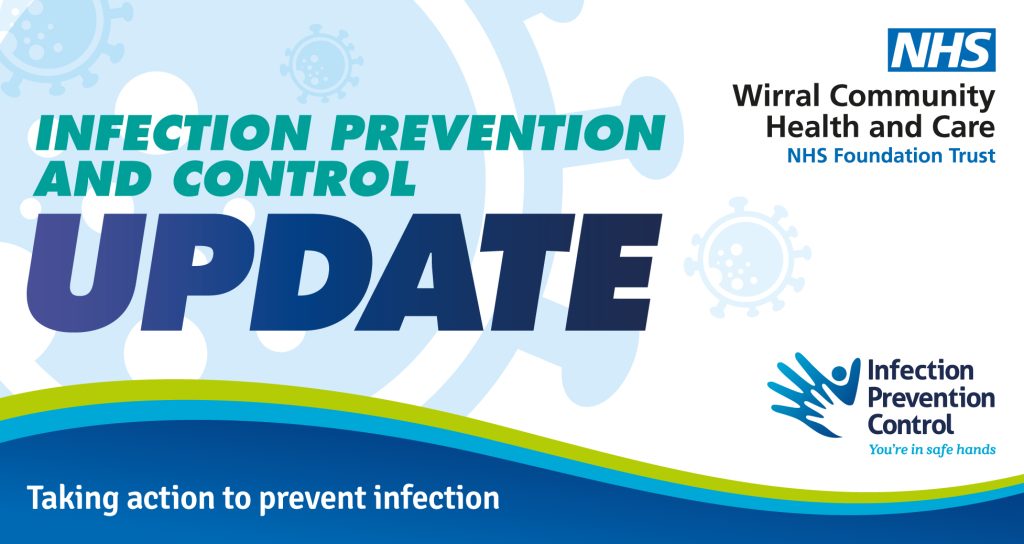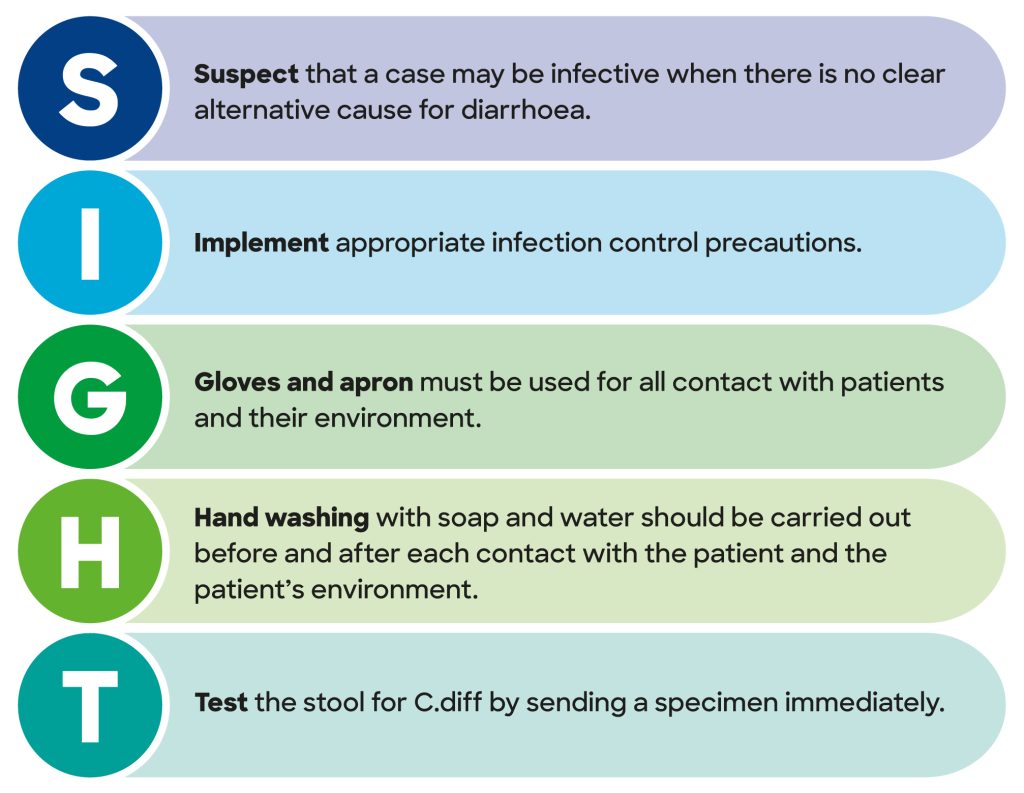
In this issue:
- Take action against Urinary Tract Infections (UTIs)
- Clostridioides difficile (C.diff) news
- Coming soon from the Infection Prevention and Control (IPC) Team
Take action against Urinary Tract Infections (UTIs)
Urinary Tract Infections (UTIs) are the second most common reason for antibiotics being prescribed in the community, with Wirral being one of the highest antibiotic prescribers for UTIs in England. We must use antibiotics appropriately and only when required to prevent antimicrobial resistance.
Remember the following guidance:
- Do not use urine dipstick testing in the diagnosis of people over 65 years with a possible UTI.Often, people are treated with antibiotics based on the result of the urinary dipstick. This leads to inappropriate prescribing of antibiotics, which can increase antimicrobial resistance.
- Do not use urine dipstick testing to diagnose a UTI in adults with urinary catheters, because bacteria can often live harmlessly in the bladder of a person with a catheter without causing any signs or symptoms of infection.
- People over 65 should have a clinical assessment if they are displaying signs and symptoms of a UTI (e.g., urinary frequency, fever, discomfort when passing urine) prior to being diagnosed and treated for a UTI. This may include a urine sample being sent to the laboratory.
- People with a urinary catheter must have a regular review to ensure that there is a clear indication for its use.
- Deliver safe catheter care for people with a urinary catheter by staying up to date with training and educating patients on self-care.
Advice to share with patients and residents on preventing UTIs:
- Wash your genital area regularly to prevent bacteria from entering your bladder.
- In females it is recommended to wipe from front to back after using the toilet as this can prevent bacteria from entering the bladder from your rectum.
- Over 70% of UTIs can be avoided if you increase your fluid intake. Prevent dehydration by recognising its signs: dark coloured urine, light-headedness, headache, tiredness and dry mouth, lips and eyes. Stay hydrated by drinking plenty of fluids and eating a fluid-rich diet, eg fruits and vegetables.
Helpful resources
Hydration poster and keeping hydrated leaflet
UTI Prevention training presentation
To Dip or Not To Dip training animation
Clostridioides difficile (C.diff) news
Clostridioides difficile (also known as C. diff), is a type of bacteria which can be found in the large bowel. It can cause diarrhoea and most commonly affects people who have recently been treated with antibiotics, particularly older people and people whose immune systems are compromised.
You can become infected with C.diff if you ingest the bacterium (through contact with a contaminated environment or person). This can happen by:
- Not washing your hands after using the toilet.
- Coming into contact with someone who hasn’t washed their hands after using the toilet.
- Transferring the bacteria to the mouth.
C.diff infections can be unpleasant and can sometimes cause serious bowel problems. However, they can usually be treated with a course of antibiotics. If you suspect someone has a C.diff infection or unexplained diarrhoea, follow the SIGHT steps below (graphic, and bullet points for screen readers):
- S: Suspect that a case may be infective when there is no clear alternative cause for diarrhoea.
- I: Implement appropriate infection control precautions.
- G: Gloves and apron must be used for all contact with patients and their environment.
- H: Hand washing with soap and water should be carried out before and after each contact with the patient and the patient’s environment.
- T: Test the stool for C.diff by sending a specimen immediately.

Helpful resources
Coming soon from the IPC Team
The IPC Team at WCHC are working on some exciting projects this year. Here is a sample of what’s coming up:
- World Hand Hygiene Day Friday 5 May 2023
We recognise World Hand Hygiene Day each year as an opportunity to unite for safety by sharing the message that hand hygiene is vital to prevent infection. Look out for this year’s messages during the first week of May.
- IPC Champion programme
This programme presents the opportunity to develop and enhance your knowledge of infection prevention and control by becoming an IPC Champion. It also aims to strengthen partnership working across different settings.
- New IPC Twitter account and IPC digital hub on the Trust website
Coming soon is the new IPC digital hub on the Trust website. This will be the home for all IPC information, and your go-to for support and guidance. Additionally, the IPC Team will be launching a dedicated IPC Twitter account to share the most up to date information. More details will be shared soon – be sure to follow us!
For more information, visit www.wchc.nhs.uk or contact the IPC team via telephone 0151 604 7750 or email: [email protected]